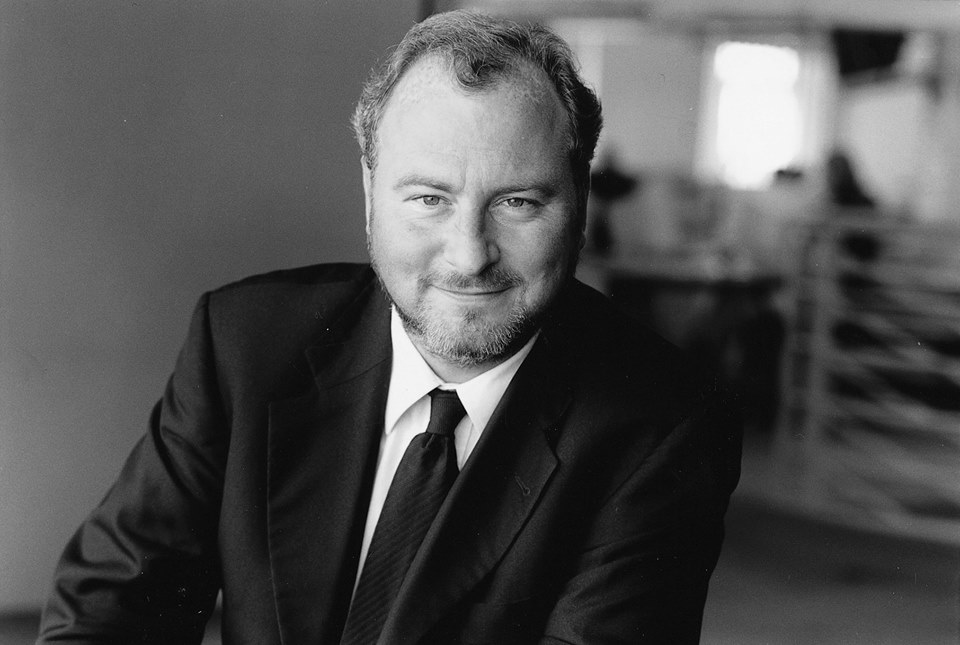The relationship between technology companies and journalism is uneasy and complicated, but journalism needs to be at least an equal partner, according to Emily Bell, Director at the Tow Centre for Digital Journalism at Columbia Journalism School. Bell said the media has reached a point of transition.
“News spaces are no longer owned by newsmakers. The press is no longer in charge of the free press and has lost control of the main conduits through which stories reach audiences. The public sphere is now operated by a small number of private companies, based in Silicon Valley.”
Presenting the Reuters Memorial Lecture 2014, Silicon Valley and Journalism: Make Up or Break Up, for the Reuters Institute for the Study of Journalism, Bell, a former journalist at the Guardian newspaper, said that journalists, as well as growing numbers of citizen reporters, now had their free speech standards, reporting tools and publishing rules “set by unaccountable software companies”.
A defining issue for journalism and society
“(This) is a defining issue not just for journalism but the whole of society,” Bell said. “I am not going to argue that this is a reversible trend. It isn’t. But I am going to argue that journalism has an important role in building and deploying new technologies, shaping noncommercial parts of a new public sphere and holding to account these new extensive systems of power.”
Journalism has become too reliant on technology it does not understand
Bell said that journalism has become too reliant on technologies it does not properly understand. “The fourth estate, which liked to think that it operated in splendid isolation from other systems of money and power, has slipped suddenly and conclusively into a world where it no longer owns the means of production, or controls the routes to distribution.
“How this happened is pretty well documented. None of us hold Stanford engineering PhDs. We lacked the fundamental technological literacy to understand how these new systems of distribution and expression were going to emerge, we lacked the institutional will or insight to move swiftly enough in the right directions and we were held back in transformation by large, legacy organisations and the revenues that came with them. And doing journalism well is a hard, resource hungry business,” Bell (pictured) said.
Nearly all content is now published on social platforms, Bell said. These platforms, mostly owned by companies based in America’s Silicon Valley, were built by engineers who admit they have neither the skills, nor desire, to edit content. Traditional media however has the journalistic and editorial skills, but comparatively little control over content.
“If there is a free press, journalists are no longer in charge of it. Engineers who rarely think about journalism or cultural impact or democratic responsibility are making decisions every day that shape how news is created and disseminated,” Bell said.
“Legacy media did not understand what it was losing, Silicon Valley did not understand what it was creating”
“In creating these amazingly easy to use tools, in encouraging the world to publish, the platform technologies now have a social purpose and responsibility far beyond their original intent. Legacy media did not understand what it was losing, Silicon Valley did not understand what it was creating,” Bell told the audience which included representatives from technology companies, Google, Twitter and Facebook, and from legacy media, including her former editor at the Guardian newspaper, Alan Rusbridger.
Bell argued that social media platforms such as Facebook, which is used by 20% of the world’s population, have abdicated editorial responsibilities to software and algorithms.
“We don’t want to have editorial judgment’. This is a refrain one hears over and over again within Silicon Valley companies: We are ‘just a platform’, the ‘technology is neutral’; ‘we don’t make editorial decisions’. I truly think engineers believe this although it is demonstrably wrong.
Algorithms can filter, censor or remove important news
“Every time an algorithm is tweaked, an editorial decision is being made,” Bell said. She described this as “unintentional editing” and said it had unpredictable consequences, sometimes filtering, removing or censoring important news. The public is unaware of how news reaches them on most social platforms, because algorithms are commercially sensitive and are therefore not transparent.
The lack of transparency around algorithms led to concern recently when it emerged that Facebook has used software to manipulate users’ emotions as part of an academic experiment. In another experiment, the Facebook news feed was tweaked to see if it increased voter turnout during elections. It did.
Three initiatives the press should take to regain control of the public sphere
Bell outlined three initiatives the press should take to redress the balance between journalism and Silicon Valley: the first is that journalism should build its own tools and services which put software in the service of journalism, rather than the other way around. She called on journalism schools to combine the teaching of journalism with data and computational training. “Journalists and editors should learn to code, they should learn programmatic thinking and should be able to understand the world they operate in.”
Bell also called for more regulation, although admitted the issue was unfashionable and unpopular. She said that journalism had the intellectual capital to address outstanding regulatory issues such as monopoly, utility status and opacity.
“Report, report, report”
Bell’s third initiative was to call on journalists to do what they do best: “report, report, report,” she said. “Cover technology as a human rights and political issue as if it were Parliament. Maybe even with more verve and clarity were that possible. It is just as interesting and about ten thousand times more important,” she said.
Photo credit: courtesy of Emily Bell and RISJ








































